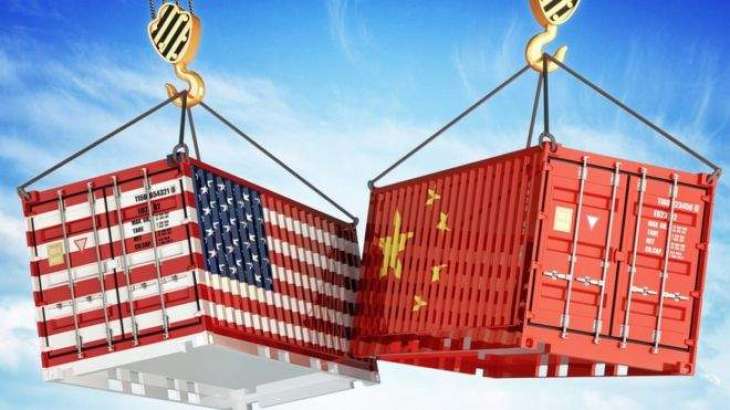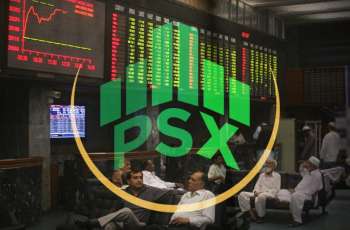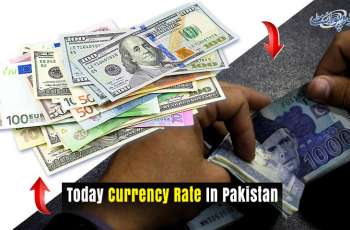Despite the Chinese economy showing signs of recovery in 2017, trade tensions with the United States dragged China's economic growth to its slowest pace in almost three decades in 2018, experts told Sputnik
MOSCOW (Pakistan Point News / Sputnik - 21st January, 2019) Despite the Chinese economy showing signs of recovery in 2017, trade tensions with the United States dragged China's economic growth to its slowest pace in almost three decades in 2018, experts told Sputnik.China's gross domestic product (GDP) reached 90.03 trillion Yuan ($13.24 trillion) in 2018, up 6.6 percent from the previous year, the nation's National Bureau of Statistics said in a report released on Monday. This annual GDP growth rate is the slowest China has seen in the past 28 years. According to the report, Chinese economic growth gradually decreased over the year from 6.9 percent in 2017. It grew 6.8 percent and 6.7 percent in the first two quarters of 2018, respectively, and the number stood at 6.5 and and 6.4 percent in the third and the fourth quarter of the year, respectively.
As China experimented with structural economic reforms in recent years, the nation's economic growth was unable to sustain the double-digit growth rates it once enjoyed and entered a new era of slower growth labeled as the "new normal" by the Chinese government.
Chinese economists pointed out that the trade war with the United States was the main factor that drove down China's economic growth in the second half of 2018.
"In 2017, the Chinese economy showed positive signs of growth and everyone believed the Chinese economy would enter a new cycle of growth. Everyone thought the situation had bottomed out in 2017, as all economic indicators showed warming signs. But in 2018, the trade war [with the United States] has made everyone in the market very pessimistic and the investors' confidence started to shake. Since the 1990s, trade has always had enormous impact on the Chinese economy. Trade with United States is definitely the key factor," Zhang Jun, the director of the China Center for Economic Studies at Fudan University in Shanghai, told Sputnik.
The economist explained that the trade war's impact on the Chinese economy was more than the volume of the country's trade with the United States.
"Our [China's] trade surplus takes a very small share of our annual GDP today. But trade with the United States still has a significant impact on the Chinese economy, because of its influence on the capital market and the investors' confidence. The impact is much more than bilateral trade itself. If you think about it, the 6.6 percent growth rate came despite a lot of merchants pushed forward their exports to the United States before additional tariffs are fully implemented. The impact from the trade war is more indirect, but also more extensive," he said.
The expert illustrated what the 6.6 percent annual GDP growth rate meant in the context of China's economic growth.
"In the past 5-6 years, we've always seen economic growth rates close to 7 percent. The 6.6 percent annual GDP growth rate is really too close to our target of 6.5 percent. If you look at the 2018 figures, it's very obvious that the downward pressure has been increasing," he said.
Nevertheless, Zhang believed weak domestic economic growth was unlikely to push China to offer more concessions in ongoing trade talks with the United States because structural changes in Chinese economic policies could not happen overnight.
As part of the nation's efforts to boost domestic economic growth following the global financial crisis in 2008, China's State Council, the nation's cabinet, unveiled a massive 4 trillion yuan ($586 billion) economic stimulus package in the same year, primarily focusing on investments in infrastructure construction.
Professor Zhang suggested that the Chinese government was unlikely to introduce a similar extensive economic stimulus package this time because such measures had proven to be inefficient and could lead to asset bubbles.
"China has been very careful when it comes to launching massive stimulus packages, after learning the lessons from 2008. If we continued to pour the money into infrastructure construction or even the property market, there will be some results. But the results will deteriorate and be worse than before. Excessive investments in infrastructure construction will only lead to accumulated debts and asset bubbles," he said.
The economist pointed out that Chinese authorities could allow foreign and private investors to invest in industries that have been closely off previously, which would create new drivers of economic growth.
"We probably need to change our way of thinking. We can try to open the industries that have previously been under the government's control and did not have a market entry mechanism, such as finance, health care, education and social security. The biggest problem in China is how to improve the efficiency and profitability of investments. It's necessary to try to release the potential of those areas that were closed off before," he said.
Even if China and the United States agree in the near future to reduce bilateral trade tensions, Chinese economic growth is likely to continue at the current slower pace until the nation successfully transforms into an economic growth model driven by innovation, other Chinese economists argued.
"The downward pressure on the Chinese economic will continue to exist, even if China and the United States resolve the trade dispute. That's because China is going through fundamental structural reform, from relying heavily on investments, resources and labor to being driven by technological and systematic innovation. The temporary economic slowdown is unavoidable. China still has a long way to go before it can become a nation of innovation," Hu Xingdou, a professor of economics at the Beijing Institute of Technology, told Sputnik.
Unless China develops a culture and an educational system that encourage innovation, it will be impossible for the nation to become an innovation powerhouse with state-owned enterprises continuing to monopolize the market and private enterprises struggling to survive, the economist suggested.
The Beijing-based scholar warned that the slowdown in economic growth in China could result in a hike in unemployment after the Chinese New Year holidays end in February, when Chinese migrant workers return from small settlements to bigger cities to find a job for the year.
"One possible consequence of slowed economic growth is its impact on employment. Such problems will start to show after the Chinese New Year. A large number of private small-and-medium enterprises could face suspended production or bankruptcy, which could cause a new wave of unemployment among migrant workers in China," he said.
The expert pointed out that unemployment among migrant workers could disrupt social stability in China, as a growing number of crimes have been committed by disgruntled migrant workers struggling to make a living in bigger Chinese cities.




